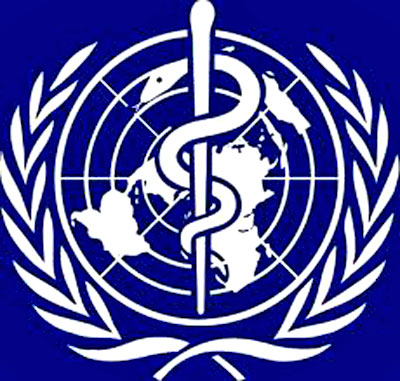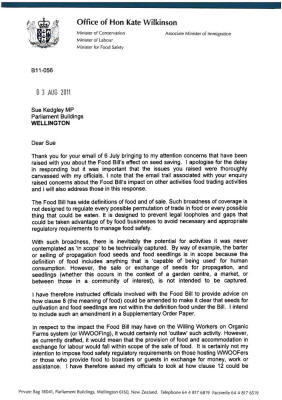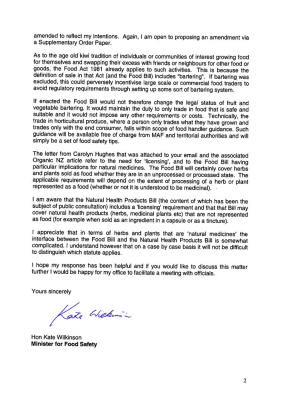
by Brandon Turbeville
December 7, 2011
from
ActivistPost Website
As every nation in the world marches forward to
a completely integrated and globalized society, the control of food is an
absolute necessity for those who seek to accelerate amalgamation.
It is for this reason that we see an increase in
domestic legislation that mirrors the guidelines and demands of
international standard-setting organizations. These attempts at
harmonization of national laws, specifically
those regarding food, are
coming in daily from all sides of the globe.
Whether it’s
the GMO fight in the United States, Mexico, and Europe, or the
question of the level of vitamins and minerals in supplements, the Biotech
Corporations are continually winning most of their battles with the help of
mass ignorance, national governments, the World Trade Organization and
similar entities.
Indeed, when one begins to examine many of the debates regarding food and
food regulation, one name appears over and over -
Codex Alimentarius.

For those who may be unaware of what Codex Alimentarius
is, I refer you to
Codex Alimentarius - The End of Health Freedom.
Briefly speaking,
however, Codex is an agency created under,
-
the Food and Agricultural
Organization (FAO)
-
the World Health Organization (WHO)
-
and thereby functions under direction of
the United Nations (UN)
Codex Alimentarius sets the standards by which the World Trade Organization
implements its dispute settlements and international trade policies.
Codex
Guidelines, once agreed upon, are enforced by the WTO and other related
treaties. Essentially, Codex sets the standards for the world regarding
food, vitamins and minerals, GMO’s, and almost everything else that humans
consume.
Although the influence of Codex Alimentarius can be seen the world over, New
Zealanders appear to be the latest targets of the international
standard-setting organization via a food bill titled
Food Bill 160-2.
Similar to legislation recently passed in the United States, the New Zealand
Food Bill essentially turns the right to grow food and share it with others
into a
regulated and controlled privilege.
Food Bill 160-2 would also allow
for the control of seeds (specifically heirloom seeds), and the creation of
Food Safety Officers that would serve to police the newly designated and
loosely termed “food producers.” It would also effectively end the ability
of individuals to become and remain self-sufficient.
For instance, the bill defines food so as to include any plant or animal
(living or dead by the definitions set forth in the bill) intended for human
consumption, as well as:
any ingredient or nutrient or other constituent of any food or drink,
whether that ingredient or nutrient or other constituent is consumed or
represented for consumption on its own by humans, or is used in the
preparation of, or mixed with or added to, any food or drink; and anything
that is or is intended to be mixed with or added to any food or drink.
Furthermore, giving broad and alarming levels of power to the
Governor-General,
“anything that is declared by the Governor-General, by
Order in Council made under section 355, to be food for the purposes of this
Act” will also fall under the jurisdiction of Bill 160-2.
So much is included in just the “Definitions” section of the bill one could
almost write a twenty-page article just on the connotations provided by
Section 8 alone.
Regardless, as one can clearly see from reading the small
portion of the bill quoted above, the terms of the bill are
all-encompassing.
Herein, food is defined literally as anything that can be consumed by humans
and it retains this definition at whatever the stage of its development.
Therefore, corn may be considered food whenever it is being sold at a
market. It may be considered food when it is being shucked, and it may be
considered food when it is being grown. It is also considered food before
being grown - in seed form.
Not only that, but because many seeds themselves are consumed by humans,
seeds naturally fall under this tyrannical legislation as much as anything
else.
As a result of the new policies to be implemented as a result of Food Bill
160-2, anyone then engaged in producing and distributing food would be
subject to the regulation and monitoring of the new authorization program.
Of course, the classification of “food producer,” applies to individuals who
grow two or three tomato plants for their own consumption as much as it does
to major Agri-businesses.
That being said, there are clearly financial concerns with the new bill as
well.
Obviously, Big-Agra would easily be able to pay the monitoring fees
for the new Soviet program while small farmers, where they still exist,
could not. In addition, individuals would certainly no longer be able to
continue selling their food at the local farmers market, local restaurants,
or even to other individuals.
True to form, the questions regarding the new legislation are being brushed
off by the New Zealand government, particularly those individuals in the New
Zealand government who have been pushing the bill from the start.
For instance, Kate Wilkinson, New Zealand Minister of Food Safety recently
stated to
Campbell Live that concerns over the Food Bill were part of some
kind of “conspiracy theory” and that she didn’t understand where all this
“conspiracy theory” was coming from.
Before I continue, I must ask if all this doesn’t sound eerily familiar. It
certainly does to me.
Last year, when the United States Congress was busy passing
S.510, a bill
that was very similar if not
identical in scope to the New Zealand Food
Bill, we heard the same cat calls of “conspiracy theory” launched at anyone
who criticized the impending legislation.
Now, in late 2011, after the U.S.
government has publicly raided organic food shops, raw milk distributors,
and the Amish with guns drawn by clownish looking SWAT teams, the
name-calling is a bit harder to justify.
The similarities between the law in the United States and the one being
proposed in New Zealand are quite striking, so much in fact that they can
scarcely be considered a coincidence - especially when both of these bills
are themselves disturbingly similar to Codex Alimentarius Guidelines and
recommendations.
Indeed, upon closer examination it appears that there is
more of a pattern than some members of national governments would have us
believe. No doubt this is almost always the case.
But back to Miss “Conspiracy Theory” Kate Wilkinson for a moment. To answer
her question as to where all the “conspiracy theories” have come from,
perhaps she should look at her own statements.
Indeed, in a letter to Green MP Sue Kedgley, who has expressed some
attenuated level of criticism toward the bill, Wilkinson wrote:
The barter or selling of propagation food
seeds and food seedlings is in scope [of the Bill]... However the sale
or exchange of seeds for propagation, and seedlings (whether this occurs
in the context of a garden centre, a market, or between those in a
community of interest), is not intended to be captured.
Wilkinson openly admits that seeds can and will be controlled under the new
food bill.
Hardly a conspiracy theory when the antagonist actually admits it
to be true.
Notice also that her pathetic attempt to reassure Kedgley of the
harmlessness of the bill is that it is not intended to be used against
private citizens who share seeds with one another and their community.
Indeed, Wilkinson’s response throughout her letter
(below images) to Kedgley centers
around intentions, while, at the same time, openly admits that,
“With such
broadness, there is inevitably the potential for activities it was never
contemplated as ‘in scope’ to be technically captured.”


Of course, before one gets their hopes up in regards to the Green Party, one
should bear in mind that politics are politics and the theater of public
opinion is much the same in New Zealand as it is in the United States.
As
New Zealand Food Security
reports, the Green Party itself initially voted
for this bill.
The organization states,
“Ignore the [Green Party] blog’s
dog-and-pony show propaganda. The Greens, who voted for the Bill at first
reading, know the truth is coming out now and are dissembling for extra
election votes).”
Obviously, the political climate is exactly the same in
every country with exactly the same result.
In the end, there should be no mistake as to the goal of these new laws,
whether they be in the United States, New Zealand, or anywhere else for that
matter. As the world marches faster and faster toward totalitarianism, the
ability of individuals to become self-sufficient must be destroyed before
the control system can fully assert itself. This, in fact, is an integral
part of the system in the first place.
National laws such as S.510 and Food Bill 160-2 are merely the domestic
ground-level implementation of international policy handed down from,
...entities
that are themselves nothing more than tools in
the Great Work known as
the
New World Order.



